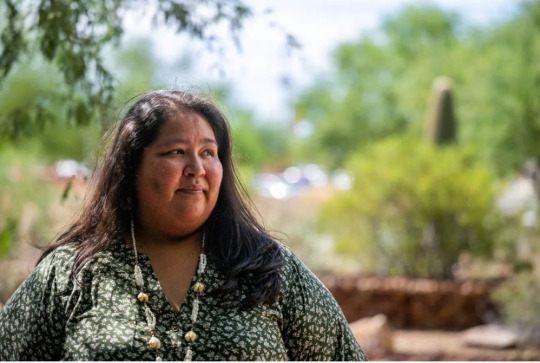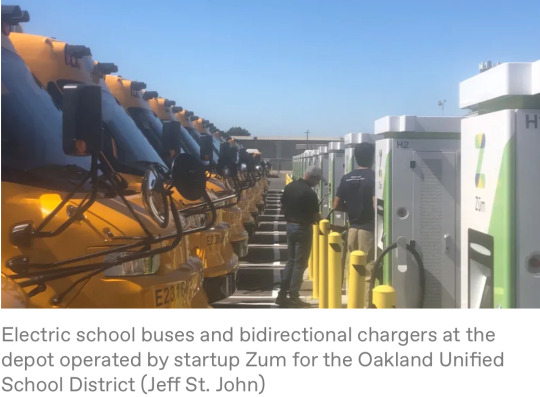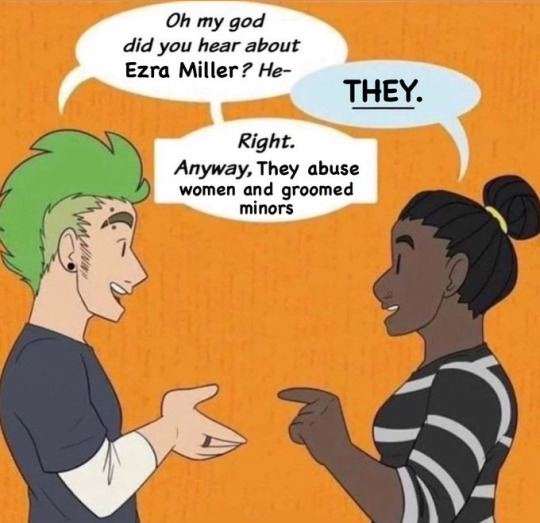#tribal police files
Explore tagged Tumblr posts
Text
The data, a sample of which was given to the Daily Dot by a group referring to itself as “the puppygirl hacker polycule,” includes approximately 8,543 files related to training, procedural, and policy manuals, as well as customer records that contain names, usernames, agency names, hashed passwords, physical addresses, email addresses, and phone numbers. Among the manuals seen by the Daily Dot, agencies include police departments, fire departments, sheriff’s offices, and narcotics units. Lexipol says on its website that it also provides services to private and public EMS, district and state’s attorneys, city jails, probation departments, juvenile detention facilities, campus law enforcement, tribal police, risk management associations, state regulatory agencies, and more. The full dataset was provided by the hackers to DDoSecrets, the non-profit journalist and data leak hosting collective, which notes that “Lexipol retains copyright over all manuals which it creates despite the public nature of its work.” ... In remarks to the Daily Dot, a hacker from the puppygirl hacker polycule said the group targeted Lexipol because there aren’t “enough hacks against the police.” “So we took matters into our own paws,” the hacker said.
thank u trans girl hackers
116 notes
·
View notes
Text
Dandelion News - September 1-7
Like these weekly compilations? Tip me at $kaybarr1735 or check out my new(ly repurposed) Patreon!
1. Rescue Dog Who Helped Raise Dozens of Foster Puppies Finds Forever Home

“Three and a half years ago, Noel arrived at Lucky Dog as a pregnant pooch pulled from [an] animal control shelter. […] Once the puppies were old enough to start life on their own, Lucky Dog found homes for all of them. […] Noel was an "amazing mom" to over two dozen foster puppies while staying at [a foster] house.”
2. Radiant cooling device uses significantly less energy than traditional air conditioning

“Testing of the device […] showed the cooling device capable of cooling the skin by approximately 7.3°C. It also showed that it consumed 50.4% less energy than an average air-conditioner of comparable ability. The research team notes that the device can also be run in reverse, to serve as a radiant heater.”
3. How a Native elections official is breaking down voting barriers in Arizona

“Gabriella Cázares-Kelly, Pima County Recorder, [… ran for office in 2020] to represent people who were being ignored by the democratic system and denied the right to vote. […] “People started getting the voter registration cards back, getting their voter IDs in the mail, and they were so excited to show me or thank me for helping them register,” she said.”
4. Scientists are growing [coral] babies in a lab to save animals from extinction

“Each August, corals in Florida release their eggs and sperm into the water[, … but “they] can’t reproduce on their own anymore.” [So, researchers are] collecting and freezing the spawn and growing them into genetically diverse baby corals that can be replanted into the wild[….] These resilient corals could pass important adaptations to their babies[….]”
5. New Legislation Will Accelerate Offshore Wind Energy in Delaware

““The responsible development of offshore wind and the transition to renewable energy is essential for the protection of wildlife, habitats, and communities from the havoc of climate change[….]” “This legislation is the product of careful consideration and input from multiple state agencies, industry experts, energy researchers and environmental advocates[….]””
6. Removal of Apache Trout from Endangered Species List Due to Collaborative Conservation Efforts

“[A]fter more than five decades of recovery efforts by federal, state and Tribal partners, […] the restoration of Arizona’s state fish marks the first […] trout delisted due to recovery, a significant conservation success[….] The Apache trout is found exclusively in streams of the White Mountains in the eastern part of Arizona […] and is sacred to the White Mountain Apache Tribe.”
7. [Texas] State court rules Austin must release files on police complaint

“Under the act, records of any complaint – even if no disciplinary action was taken – must be handed over to the civilian-led Office of Police Oversight. [… T]he ruling ushers in a new level of oversight of the complaint process and the department writ-large.”
8. Super-rare hairy-nosed wombat caught waddling through a woodland in Australia

“Ecologists at Australian Wildlife Conservancy (AWC) say the video footage provides exciting evidence wombats are breeding in the refuge again. […] There are only 400 of them in the world, making them rarer than the giant panda and the Sumatran tiger. […] “Although this isn’t the first joey born at the refuge, it is the first juvenile spotted for a few years.””
9. The country’s biggest electric school-bus fleet will also feed the grid

“[The] country’s first all-electric school-bus fleet[,…] which serve the district’s special-needs students, […] can charge with low-cost power and discharge spare capacity at times of grid stress[…. V]ehicle-to-grid charging is something for which electric school buses are particularly well suited.”
10. The Push to Save Horseshoe Crabs Is Gaining Momentum

“Conservationists hope new restrictions on harvesting and synthetic alternatives to a crab-blood compound used in biomedical testing can turn the tide for the ancient arthropods, whose eggs are a vital food source for Red Knots [threatened migratory birds]. […] Now conservationists are in the thick of a multi-pronged push to save both species.”
August 22-28 news here | (all credit for images and written material can be found at the source linked; I don’t claim credit for anything but curating.)
#hopepunk#good news#dog#foster dog#animal shelters#dogs#air conditioning#energy efficiency#native#arizona#voting#politics#coral#conservation#wind energy#wind farm#delaware#trout#fish#apache#police#police accountability#wombat#australia#school buses#electric vehicles#horseshoe crab#birds#migration#endangered species
21 notes
·
View notes
Text
Excerpt from this story from the Associated Press (AP):
The Navajo Nation has approved emergency legislation meant to strengthen a tribal law that regulates the transportation of radioactive material across the largest Native American reservation in the U.S.
The move is in response to the revival of a uranium mining operation just south of the Grand Canyon that has drawn much criticism from environmentalists and Native American tribes in the region.
Navajo President Buu Nygren signed the legislation Thursday as talks continue among tribal officials and Energy Fuels Inc. to craft an agreement that would address concerns about any potential risks to the public or the environment.
The updated law calls for more advance notification of plans to ship uranium ore from the Pinyon Plain Mine in northern Arizona to a mill in Utah. The payment of transport fees and the filing of emergency preparedness plans also are among the mandates.
The tribe in 2005 banned uranium mining across the sprawling reservation, pointing to the painful legacy of contamination, illness and death that was left behind by the extraction of nearly 30 millions tons of the ore during World War II and the Cold War.
Despite that ban, tribal lawmakers in 2012 stopped short of prohibiting the transportation of uranium across Navajo lands. Instead, they declared the tribe’s general opposition to moving ore across tribal lands and adopted regulations to protect human health and the environment by requiring notification and financial assurance, among other things.
Navajo leaders said it was time to strengthen that law and require earlier notification of shipments by Energy Fuels as the company ramps up operations.
Nygren said notification under the existing law didn’t happen when Energy Fuels shipped its first two loads of ore in July and his efforts to have tribal police intercept the semi-trucks were too late.
“The purpose of this legislation is to provide for the protection, health and safety of the Navajo Nation and its people and our precious resources such as our water,” he said in a letter thanking lawmakers for prioritizing the issue.
13 notes
·
View notes
Text
A band of robbers targets a train in the remote desert of Arizona, sneaking on board, slashing an air hose and forcing the locomotive to come to a dead halt. Then they take the goods and flee.
No, it's not the 1800s. It's 2025.
In less than a year, at least 10 such train heists in California and Arizona have netted about $2 million worth of Nike shoes, USA TODAY has confirmed after the Los Angeles Times first reported the string of robberies. More than 60 people are being charged in federal court in connection with the 10 heists, as well as other thefts in 2023 and 2024.
The robberies work like a “human conveyor belt,” with the goods passed from the train to the ground, to a truck, according to Keith Lewis, vice president of operations at CargoNet, a private company that provides supply-chain theft intelligence to law enforcement.
“It’s done fast. It’s fast as lightning,” Lewis told the Arizona Republic, part of the USA TODAY Network, adding that the thieves like conducting the heists in isolated areas so they have time to flee. “A lot of those areas you can't get to other than with a helicopter ... You can't even get to some of those rail tracks with off-road vehicles.”
The majority of the thefts have targeted trains operated by BNSF. The company says it's working with local authorities to address the problem.
"We work hard to protect our customers' freight from pickup to delivery and have security measures in place to help ensure these goods arrive safely," BNSF said in a statement to USA TODAY on Tuesday. "We are working with federal, state, local, and tribal police departments to coordinate our approach to disrupting criminal activity and arresting offenders."
Train, ground, truck: a quick process
In multiple affidavits submitted in federal court filings and obtained by USA TODAY, Homeland Security Investigations special agent Brynna Cooke describes how the heists are done.
Robbers scout containers to identify those that could have valuable cargo like Nike shoes and electronics, Cooke says.
They usually board trains in staging areas before they begin rolling. Then while the train is moving, they move from container to container, opening them with saws and bolt-cutters.
When they find something worth stealing, they’ll often force the train to stop by cutting the braking system air hose, causing it to “go into an emergency stop.” According to Cooke, once the train comes to a halt, box trucks are sent in to unload the merchandise and flee.
Lewis has seen the process firsthand.
“I've watched them through binoculars,” he told the Republic. “I just couldn't get there in time.”
Jan 13: More than $400,000 in shoes are stolen in Arizona
One of the most recent train thefts happened on Jan. 13 in northern Arizona, when police arrested 11 people in connection with the robbery of Nike shoes from a BNSF train in a remote area outside of Williams, some 170 miles north of Phoenix, according to court records obtained by USA TODAY.
Robbers who were on board the train cut its air hose around 11 a.m., causing the train to automatically go into an emergency stop.
Shortly after the thieves cut the Arizona train's air hose on Jan. 13, a BNSF police officer who was in the area spotted several cases of Nike shoes beside the train and later saw several people loading Nike cases into a U-Haul truck and a Ford Econoline truck nearby.
There were trackers inside some of the boxes that authorities then used to conduct a traffic stop on the van, court records say. When authorities later searched both trucks, they found 1,985 pairs of unreleased Nike shoes worth over $440,000, according to court records.
The shoes targeted were a new Air Jordan 4 style, a striking red-orange collaboration with BMX athlete Nigel Sylvester, dubbed “Bike Air.” When they go on sale in the spring, they will retail for $225.
But not all train heists end in arrests. When thieves cut air hoses in remote areas, conductors and engineers are stranded along with the disabled train. Ill-equipped to stop a robbery, they can’t do much beyond call 911.
“I've had conductors telling me that they actually watched them unload it," Lewis told the Republic. "But by policy they can't confront them because they're not armed, and the bad guys could be armed."
Jan: 10, $18,000 in shoes are stolen
In Southern California, two suspects are accused of stealing about $18,000 worth of merchandise in a remote area known as the Wonder Valley. According to a news release from the San Bernardino Sheriff's Department, BNSF Police contacted authorities for help.
Police said they were notified that several suspects were robbing a train. On the way to the scene, police said they saw a box truck driving in the area.
“Deputies conducted a traffic enforcement stop on the vehicle and, through investigation, located approximately $18,000 in stolen items inside the truck,” police said.
Two men, 28-year-old Oscar Sosa of Apple Valley, California, and 45-year-old Jose Villalobos-Infante of Phoenix, were arrested in connection to the robbery. They've since been charged with second-degree burglary, grand theft and conspiracy, according to the Hi-Desert Star.
USA TODAY was not able to immediately find attorneys representing the men.
Jan: 15, $400,000 in shoes are stolen again
Only two days after the Arizona heist and five days after the robbery in San Bernardino County, robbers allegedly targeted a train in the same area of California.
According to a news release from police, BNSF Railroad police notified the San Bernardino County Sheriff's Department of a train robbery. Deputies again spotted a white van leaving the area.
"However, the vehicle failed to yield, and a pursuit ensued," a sheriff's department statement said. "The vehicle became disabled on a dirt berm, two occupants fled, and a foot pursuit ensued."
Two teenagers, whose names have not been released, were arrested in connection with the robbery. Police said they were able to recover 218 cases of Nike shoes valued at about $408,000.
Police have identified possible “ringleader”
According to federal court records, a man identified as Felipe Avalos-Mejia is alleged to be the ringleader of some of the train heists, operating out of Phoenix and Los Angeles.
Investigators say that Avalos Mejia had a network of scouts who helped him select trains to target. Investigators also said Avalos-Mejia provided cars and paid burglary crews to rob the trains.
Police raided 11 homes and 16 storage units connected to Avalos-Mejia in June, arresting 43 suspects and recovering $3 million in merchandise believed to have been stolen from BNSF trains.
Avalos-Mejia was arrested one day later on June 21. Court documents say police found $120,000 in cash, as well as a "detailed ledger that listed Nike and other merchandise that is typically burglarized from BNSF trains, as well as dollar amounts detailing what the merchandise is worth and for what it is sold."
Avaloz-Mejia's attorney declined USA TODAY's request for comment on Tuesday.
6 notes
·
View notes
Text
ISLETA PUEBLO, N.M. (Reuters) - As Detective Kathleen Lucero drives along a dirt road towards the Manzano mountains east of her New Mexico Native American village, she recalls the time earlier in her career when an elder told his family he was heading this way to water his cows. He didn’t come back.
It was back in 2009 when Lucero was a patrol officer, learning how to stop her people becoming part of the U.S. epidemic of missing and murdered indigenous women and relatives (MMIWR).
She filed a report on the elder. Her police chief told her that was not enough. Following that advice, she started networking with outside police agencies.
“We got a hit,” said Lucero, a member of a traditional Isleta family, whose mother disowned her for a week when she decided to join the pueblo’s police 17 years ago because she wanted to become an "advocate" for her people.
Nine hours after going missing on the Isleta Pueblo just south of Albuquerque, the elder was found over 400 miles away by an Oklahoma traffic cop after his car ran out of gas, Lucero said. He was showing early signs of dementia.
That case was an early lesson that Lucero took to heart.
These days, as Isleta Pueblo’s chief criminal investigator, Lucero does not judge a victim for doing drugs, or running away. She doesn’t wait for them to show up. She starts investigating, posting their name and photo on social media, calling law enforcement contacts, maybe even television stations. Since 2015 she has handled eight such cases, with seven people found alive and one still missing.
“I believe that somebody knows somebody, and it keeps networking,” said Lucero.
Her prioritization of missing people, backed by Isleta police chief Victor Rodriguez, is not the norm amongst U.S. and tribal law enforcement where a jurisdictional maze and lack of resources contribute to an estimated 4,200 indigenous cases remaining unsolved, according to over a dozen law enforcement officials and policymakers Reuters spoke to.
These gaps have led Native American police Reuters met with to take matters into their own hands, some forming their own missing units. Still, they remain a minority amongst tribes, most of which lack the funds and staff to make missing members a priority, according to law enforcement and lawyers.
Driven by decades of Native American activism, data showing the scale of the crisis, and the appointment of the United States' first ever Native American cabinet secretary Deb Haaland, the issue of missing indigenous people entered the U.S. mainstream in the last five years.
State taskforces, federal and local investigative units and data initiatives have sprung up, with tribal and federal law enforcement reporting improved coordination.
Even federal law enforcement officials admit that Native American police are severely underfunded by the federal government, which provides public safety to tribes through the Bureau of Indian Affairs (BIA). On many reservations and pueblos that leads to low staffing, substandard investigations or no investigations of missing cases.
8 notes
·
View notes
Text
Ezra Miller - They/Them cover
How convenient is it that adherents of the ideology of the pedophile John Money, members of the Church of Transgenderism, have an easy out against any and all criticism by claiming special status as a member?
Ezra Miller, star of The Flash which comes out Friday, is one such guy. Using They/Them pronouns and claiming to be the imaginary "non-binary" he can commit crimes against women at will and will get very little media coverage. They cover for him and not about him.
He was arrested twice and accused of multiple instances of physical assault. He also faced allegations of brainwashing 18-year-old activist Tokata Iron Eyes and keeping her from her parents and received a temporary harassment-prevention order last June on behalf of a mother and her 12-year-old child in Massachusetts. In August, Vermont State Police tried to serve an emergency-care order to a different woman and her three children, who were reportedly living with the actor in “unsafe conditions” on a farm in Vermont. No news has emerged on whether the missing people have been located, but two months after the order was issued, Miller was charged with felony burglary, stemming from an incident in which he broke into someone’s home and stole bottles of alcohol.
He's a classic groomer. In June 2022, Iron Eyes' parents filed legal documents asking a judge to issue an order of protection against actor Ezra Miller on her behalf, due to Ezra using "violence, intimidation, threat of violence, fear, paranoia, delusions, and drugs" including marijuana and LSD to hold sway over her. Although Iron Eyes is 18, due to tribal regulations Iron Eyes' parents are still considered her legal guardians.
Iron Eyes' parents claim that an inappropriate relationship began between the pair in 2016, during the Dakota Access Pipeline protests, when Miller was 23 and Iron Eyes was 12. They further claim, and photos document, that the year after the two met, Iron Eyes flew to London to visit Miller on the set of Fantastic Beasts and Where to Find Them. In 2021, she dropped out of school, allegedly to follow Miller. Iron Eyes' parents also alleged in the legal documents that Miller caused bruises on Tokata and that Miller had given Iron Eyes a large amount of LSD in 2020.
Her parents' countered by claiming their child does not control her social media. Iron Eyes stated in the video response that it's her own choice not to have a phone. As of June 10, 2022, law enforcement couldn't find Miller to serve him with the order .Miller then posted messages on his Instagram account mocking the court's attempts to find him, but has since deleted them.
In August, Miller's former music collaborator Oliver Ignatius stated that he had witnessed Miller verbally abuse Iron Eyes over her wearing makeup. Takota defended Miller by referring to the incident as "a catty comment" and a part of "queer dialogue"; she called the allegation of abuse "homophobic".
According to a September 2022 Vanity Fair article, the tribal court dismissed the request for a permanent protective order, and the parents say they withdrew their request for custody, believing the odds were stacked against them; the same article reports that Miller claimed to be Jesus, the devil, and the next Messiah while Iron Eyes believed herself to be a Native American spider goddess. The article also claimed that Miller and Iron Eyes believe their relationship will bring about a Native American revolution followed by the apocalypse.
Just to make it clear, he is not alleged to have committed any crime against a man only women. He uses his status as a actor and a they/them to hide that he is a groomer and an abuser.

10 notes
·
View notes
Text
Events 4.3 (after 1970)
1973 – Martin Cooper of Motorola makes the first handheld mobile phone call to Joel S. Engel of Bell Labs. 1974 – The 1974 Super Outbreak occurs, the second largest tornado outbreak in recorded history (after the 2011 Super Outbreak). The death toll is 315, with nearly 5,500 injured. 1975 – Vietnam War: Operation Babylift, a mass evacuation of children in the closing stages of the war begins. 1975 – Bobby Fischer refuses to play in a chess match against Anatoly Karpov, giving Karpov the title of World Champion by default. 1980 – US Congress restores a federal trust relationship with the 501 members of the Shivwits, Kanosh, Koosharem, and the Indian Peaks and Cedar City bands of the Paiute people of Utah. 1981 – The Osborne 1, the first successful portable computer, is unveiled at the West Coast Computer Faire in San Francisco. 1989 – The US Supreme Court upholds the jurisdictional rights of tribal courts under the Indian Child Welfare Act of 1978 in Mississippi Choctaw Band v. Holyfield. 1993 – The outcome of the Grand National horse race is declared void for the first (and only) time 1996 – Suspected "Unabomber" Theodore Kaczynski is captured at his Montana cabin in the United States. 1996 – A United States Air Force Boeing T-43 crashes near Dubrovnik Airport in Croatia, killing 35, including Secretary of Commerce Ron Brown. 1997 – The Thalit massacre begins in Algeria; all but one of the 53 inhabitants of Thalit are killed by guerrillas. 2000 – United States v. Microsoft Corp.: Microsoft is ruled to have violated United States antitrust law by keeping "an oppressive thumb" on its competitors. 2004 – Islamic terrorists involved in the 2004 Madrid train bombings are trapped by the police in their apartment and kill themselves. 2007 – Conventional-Train World Speed Record: A French TGV train on the LGV Est high speed line sets an official new world speed record. 2008 – ATA Airlines, once one of the ten largest U.S. passenger airlines and largest charter airline, files for bankruptcy for the second time in five years and ceases all operations. 2008 – Texas law enforcement cordons off the FLDS's YFZ Ranch. Eventually 533 women and children will be taken into state custody. 2009 – Jiverly Antares Wong opens fire at the American Civic Association immigration center in Binghamton, New York, killing thirteen and wounding four before committing suicide. 2010 – Apple Inc. released the first generation iPad, a tablet computer. 2013 – More than 50 people die in floods resulting from record-breaking rainfall in La Plata and Buenos Aires, Argentina. 2016 – The Panama Papers, a leak of legal documents, reveals information on 214,488 offshore companies. 2017 – A bomb explodes in the St Petersburg metro system, killing 14 and injuring several more people. 2018 – YouTube headquarters shooting: A 38-year-old gunwoman opens fire at YouTube Headquarters in San Bruno, California, injuring three people before committing suicide.
1 note
·
View note
Text
[ad_1] Guwahati: The Assam Assembly descended into chaos on Monday after the ruling party accused Congress MLA Nurul Huda of allegedly attacking Deputy Speaker Numal Momin outside the House, prompting a brief adjournment. Earlier, Congress legislators arrived at the Assembly wearing black attire to protest against BJP MLA Rupjyoti Kurmi, who had allegedly abused opposition MLAs and attempted to assault them inside the House the previous week. Before the session began, Congress members staged a sit-in protest outside the Speaker’s chamber, demanding disciplinary action against Kurmi. During Question Hour, Chief Minister Himanta Biswa Sarma informed the House that he had received a message from Momin stating that he was attacked by Huda and subsequently hospitalized. Sarma urged the Speaker to file a police complaint, as the incident took place outside the House, allowing police investigation. However, opposition members countered the claim, noting that Momin was seen attending the session moments before the alleged attack but left shortly after. Leader of the Opposition Debabrata Saikia called for a House Committee probe, arguing that the alleged attack occurred within the Assembly premises and required internal scrutiny. The opposition — including Congress, AIUDF, and CPI-M members — stormed the Well of the House, protesting Kurmi’s alleged misconduct and rejecting the ruling party’s accusations against Huda. Treasury bench members, led by CM Sarma, countered the protests, alleging that the opposition had attacked Momin, an indigenous tribal, warning that the incident could set a dangerous precedent. Speaker Biswajit Daimary assured that officials had been instructed to investigate the matter and briefly adjourned the House for 10 minutes to restore order. The post Ruckus in Assam Assembly Over Alleged Attack on Deputy Speaker appeared first on Global Governance News- Asia's First Bilingual News portal for Global News and Updates. [ad_2] Source link
0 notes
Text
[ad_1] Guwahati: The Assam Assembly descended into chaos on Monday after the ruling party accused Congress MLA Nurul Huda of allegedly attacking Deputy Speaker Numal Momin outside the House, prompting a brief adjournment. Earlier, Congress legislators arrived at the Assembly wearing black attire to protest against BJP MLA Rupjyoti Kurmi, who had allegedly abused opposition MLAs and attempted to assault them inside the House the previous week. Before the session began, Congress members staged a sit-in protest outside the Speaker’s chamber, demanding disciplinary action against Kurmi. During Question Hour, Chief Minister Himanta Biswa Sarma informed the House that he had received a message from Momin stating that he was attacked by Huda and subsequently hospitalized. Sarma urged the Speaker to file a police complaint, as the incident took place outside the House, allowing police investigation. However, opposition members countered the claim, noting that Momin was seen attending the session moments before the alleged attack but left shortly after. Leader of the Opposition Debabrata Saikia called for a House Committee probe, arguing that the alleged attack occurred within the Assembly premises and required internal scrutiny. The opposition — including Congress, AIUDF, and CPI-M members — stormed the Well of the House, protesting Kurmi’s alleged misconduct and rejecting the ruling party’s accusations against Huda. Treasury bench members, led by CM Sarma, countered the protests, alleging that the opposition had attacked Momin, an indigenous tribal, warning that the incident could set a dangerous precedent. Speaker Biswajit Daimary assured that officials had been instructed to investigate the matter and briefly adjourned the House for 10 minutes to restore order. The post Ruckus in Assam Assembly Over Alleged Attack on Deputy Speaker appeared first on Global Governance News- Asia's First Bilingual News portal for Global News and Updates. [ad_2] Source link
0 notes
Text
Nat'l Sheriffs' Association Endorses Kash Patel For FBI Director

U.S. President-elect Donald Trump’s nominee to be FBI Director, Kash Patel arrives for a meeting with Sen. John Kennedy (R-LA) he Dirksen Senate Office Building on December 11, 2024 in Washington, DC.
The National Sheriffs’ Association has endorsed Trump-nominee Kash Patel in becoming the next director of the Federal Bureau of Investigation (FBI).
In a letter to Senate Judiciary leaders on Monday, National Sheriffs’ Association (NSA) President Kieran Donahue praised Patel’s background to Senators Chuck Grassley (R-Iowa), and Dick Durbin (D-Ill.), the chair and ranking member of the Senate Judiciary Committee.
He highlighted Patel’s experience as a public defender in Florida’s Miami-Dade area, his experience as a federal prosecutor, and his experience as the national security adviser and senior counsel for the House Permanent Select Committee on Intelligence during Trump’s first administration.
Donahue also noted Patel’s commitment to transparency and collaboration with local law enforcement to tackle complex criminal threats.
“Mr. Patel’s service will undoubtedly prioritize the restoration of confidence in the Bureau through increased transparency, integrity, collaboration, and commitment to excellence. Mr. Patel promised NSA – if confirmed – his unwavering dedication to working hand in glove with local, state, tribal, and federal law enforcement at the rank-and- file and leadership levels. His commitment to the reciprocity of access-to-advise is essential to combating the most serious security and policing challenges ahead. We are certain Mr. Patel’s engagement will result in vital and effective partnerships nationwide to protect communities large and small,” Donahue wrote.
Additionally, the letter criticized Biden Administration policies, maintaining that they have weakened law enforcement and border security by creating more opportunities for organized crime.
The letter urged the Senate to move quickly with Patel’s confirmation.
Stay informed! Receive breaking news blasts directly to your inbox for free. Subscribe here. https://www.oann.com/alerts
0 notes
Text
Odisha: Three held for assaulting women over ‘religious conversion of tribals’
Balasore: Three people were arrested for assaulting two women over the allegation that they were attempting religious conversion of some tribal families in Odisha’s Balasore district, police said Monday. Two cases have been filed at Remuna police station in this regard and police arrested three people Sunday. The police action came after a video went viral showing two women being tied to a tree…
0 notes
Text
Rubi et al. (Manguianes) vs. The Provincial Board of Mindoro G.R. No. 14078, March 7, 1919
FACTS:
Rubi and other Manguianes (also referred to as Mangyans) of the Province of Mindoro filed a petition for habeas corpus, alleging they were illegally deprived of their liberty by provincial officials.
The Manguianes were being held against their will on a reservation in Tigbao, Mindoro.
Dabalos, one of the Manguianes, was imprisoned for escaping from the reservation.
The provincial board of Mindoro had issued a resolution and the provincial governor issued an executive order mandating the Manguianes to take up habitation on a site in Tigbao, pursuant to Section 2145 of the Administrative Code of 1917. This section allows the provincial governor, with the approval of the Department Head, to direct non-Christian inhabitants to live on unoccupied public lands.
The provincial board and governor stated that these measures were necessary for the protection of the Manguianes, the protection of public forests, and to introduce civilized customs among them.
The petitioners challenged the validity of Section 2145 of the Administrative Code of 1917.
The Manguianes are described as a "savage, mountaineer, pagan, negro" people who are very low in culture. They are peaceful, timid, primitive, and semi-nomadic.
ISSUES:
Is Section 2145 of the Administrative Code of 1917 an unconstitutional delegation of legislative power to provincial officials?
Does the term “non-Christian” in Section 2145 constitute a religious discrimination?
Does Section 2145 violate the constitutional rights to liberty, due process of law, and equal protection of the laws?
Does the confinement of the Manguianes on a reservation constitute slavery or involuntary servitude?
Is the government’s action a valid exercise of police power?
Does the court have the authority to interfere with the government's policy towards non-Christian tribes?
Are the Manguianes entitled to a hearing before being confined to a reservation?
RULING:
Answer: The Supreme Court denied the petition for habeas corpus, holding that Section 2145 of the Administrative Code of 1917 is constitutional. The court found that the Manguianes were not unlawfully imprisoned or restrained of their liberty.
Legal Basis:
Delegation of Legislative Power: The legislature may delegate the execution of laws to executive departments or subordinate officials, with discretion as to the execution of the law, not the making of the law.
Definition of "Non-Christian": The term “non-Christian” refers to the degree of civilization and not religious belief. It refers to natives of the Philippine Islands of a low grade of civilization, usually living in tribal relationships apart from settled communities. The tests to determine if a tribe is "non-Christian" are their mode of life, degree of civilization, and connection with a civilized community.
Liberty, Due Process, and Equal Protection: Civil liberty is that measure of freedom that can be enjoyed in a civilized community and includes the right to be free from arbitrary personal restraint. Due process of law means there must be a valid law, it must be reasonable, it must be enforced by regular methods of procedure and it must be applied equally to all of a class. Equal protection of the laws is not violated by a statute applicable to all of a class.
Slavery and Involuntary Servitude: Slavery and involuntary servitude involve a condition of enforced, compulsory service of one to another. Confinement to a reservation does not constitute slavery or involuntary servitude.
Police Power: The State's police power includes the right to restrain liberty to promote health, peace, morals, education and good order of the people. The government can exercise sovereign police power for the general welfare and public interest.
Government Policy: Courts should be cautious in overruling the judgment of the legislature and should generally not interfere when political ideas are the moving consideration. The government has a policy to promote the advancement of the non-Christian population.
Doctrine of Constitutional Interpretation: The Constitution must be interpreted to achieve its purpose. The intent of the framers and the spirit of the Constitution must be taken into consideration.
Application:
The Court found that Section 2145 was not an unlawful delegation of legislative power because the legislature only gave the provincial governor discretionary authority to execute the law, not make the law itself.
The Court determined that the term “non-Christian” was not a religious discrimination, but a classification based on the degree of civilization of a group of people.
The Court held that the confinement of the Manguianes was not an arbitrary deprivation of liberty because such restraint was needed for their own good and the general welfare of the country. The measures also did not violate the due process of law because the statute existed, was reasonable, was enforced by regular methods, and applied to all of the class..
The court found that confining the Manguianes to a reservation did not constitute slavery or involuntary servitude because they were not compelled to work for another.
The Court stated that the government's action was a valid exercise of police power to promote the general welfare and public interest.
The Court emphasized that it should be cautious in interfering with the government's policy towards non-Christian tribes. It is the role of the legislature and the executive to formulate this policy.
The Court recognized that it was not practical to provide a hearing to each of the 15,000 Manguianes affected by the reconcentration order, given their mode of life and lack of fixed residence.
Conclusion: The Supreme Court upheld the constitutionality of Section 2145 of the Administrative Code of 1917, asserting that the confinement of the Manguianes to a reservation was a valid exercise of government power and did not violate their rights. The Court dismissed the petition for habeas corpus.
DOCTRINE OF THE CASE:
The term “non-Christian” as used in Philippine law, refers to a low level of civilization, not religious belief.
Legislative power can be delegated for the execution of a law, as long as discretion is given on how to carry out the law and not to make the law itself.
The police power of the state is broad enough to justify the restraint of individual liberty for the general welfare and the public interest.
Courts should exercise caution in interfering with government policy, particularly when political considerations are involved.
RATIO OF THE CASE:
The ruling emphasizes that the government has the right and duty to promote the advancement of its non-Christian population.
The decision underscores the government's authority to take measures, including restraining individual liberty, when necessary for the public good and the welfare of a particular group of people.
The Court's interpretation of the term "non-Christian" seeks to avoid religious discrimination, focusing instead on the level of civilization as a basis for legal classification.
The decision reflects a view that the judiciary should not unduly interfere with the policy decisions of the legislature and executive branches, particularly in matters concerning the management of diverse populations.
The ruling acknowledges that the concept of liberty is not absolute and may be restricted by law for the greater good of the community.
The decision is based on the principle that the government is justified in using a paternalistic approach to assist and regulate groups perceived to be unable to care for themselves.
The Court also emphasized the importance of the government's role in developing the resources of the nation and making its people more productive.
0 notes
Text
"Go & Resolve Your Ethnic & Inter Tribal Issues Through Peaceful Means" - Canada Govt Tells FGN
“Go & Resolve Your Ethnic & Inter Tribal Issues Through Peaceful Means” – Canada Govt Tells FGN Amaka has clarified her recent interaction with Toronto police, denying widespread reports that she was arrested or detained. The Nigerian national explained that she was not charged with any crime but was invited by the authorities after a report was filed by the Nigerian government. Amaka stated that…
0 notes
Text
Jharkhand Yuva Morcha Demands Arrest of AJSU Leader in Assault Case
The demand follows the alleged assault of a minor tribal girl and her mother by the leader. – Jharkhand Yuva Morcha demands arrest of AJSU leader Brijesh Singh in alleged assault case. – A delegation met the Kadma police chief over the delay in action. – FIR has been filed, and SC/ST Act provisions applied, says the police. JAMSHEDPUR – The Jharkhand Yuva Morcha has called for the immediate…
0 notes
Text
Today in USA = “Unilateral Scams of Acrimony”
Idk about you but more and more it seems to me that “free speech” unilaterally grants a monopoly on hate speech.
A monopoly only to those who direct hatred at individuals and groups lower on the social ladder who are arguing for a more equitable and inclusive system
Case in Point:
Rich Scum attacking a law clerk for handing papers to the judge - part of every clerk’s job.
“Trump’s attorneys wrote in a filing Monday that the former president has never threatened the judge or his principal law clerk and they can’t be held responsible for actions taken by others.”
[It’s not Trump’s inflammatory rhetoric, the attorneys argue (🤮🤮bull 💩) but rather] “…the disturbing behavior engaged in by anonymous, third-party actors towards the judge and Principal Law Clerk…”
[A ‘third-rate actor’ they mean who starred in “Celebrity Ass-hole”?]
••••••••••••••••••••••••••••••••••••••••••
Once again Trump is teaching us lessons we’d rather not learn about the cesspool swamp in which we’re swimming:
All hate speech directed down ladder is never censored in the USA as it occurs.
Rarely for the hate speaker are there any legal outcome for or even social ostracizing of them - even when there are lethal consequences of their speech.
No consequences for an individual or a hate group for hate speech.
I know, I know - you are thinking, ‘but we have virtually unlimited freedom of speech to criticize up the ladder.
TRUE! BUT ONLY AS (ineffective) INDIVIDUALS
Whereas , what happens when any expression of mere anger is directed up ladder by a potentially effective self-organized GROUP of those lower on the social ladder?
That group and its speech is immediately crushed by legally censoring, social ostracizing, media indifference or the media expressing that libel concerns truncate coverage.
If the group takes it to the streets then ANY public group anger directed up ladder is met with the police who immediately demand the protest disband.
This pattern of censoring up ladder protest is carried out even by ostensibly Liberal local, State, or Federal administrations.
Amongst the General LIBERAL Public the validity of the criticism up ladder combined with a push for change lis often met with uncomprehending confusion. As Noam Chomsky or Bernie Sanders have experienced across six decades. But they aren’t censored since they have remained individual critics.
But have you seen the news report about self-organizing groups like Unions, the Black Panthers, anti-war student protesters BLM protesters Climate Catastrophe protesters? Peaceful protests until the riot cops show up.
Or the always violent response to Indigenous peoples group protests of incursions on Tribal lands by mining operations, lumbering operations, oil pipeline crossings, waste site dumping, water pilfering, etc.
A similar unilateral imbalance pattern down ladder occurs in freedom of assembly, freedom of the press, freedom to petition, even freedom of religion.
0 notes
Text
Events 4.3 (after 1960)
1968 – Martin Luther King Jr. delivers his "I've Been to the Mountaintop" speech; he was assassinated the next day. 1969 – Vietnam War: United States Secretary of Defense Melvin Laird announces that the United States will start to "Vietnamize" the war effort. 1973 – Martin Cooper of Motorola makes the first handheld mobile phone call to Joel S. Engel of Bell Labs. 1974 – The 1974 Super Outbreak occurs, the second largest tornado outbreak in recorded history (after the 2011 Super Outbreak). The death toll is 315, with nearly 5,500 injured. 1975 – Vietnam War: Operation Babylift, a mass evacuation of children in the closing stages of the war begins. 1975 – Bobby Fischer refuses to play in a chess match against Anatoly Karpov, giving Karpov the title of World Champion by default. 1980 – US Congress restores a federal trust relationship with the 501 members of the Shivwits, Kanosh, Koosharem, and the Indian Peaks and Cedar City bands of the Paiute people of Utah. 1981 – The Osborne 1, the first successful portable computer, is unveiled at the West Coast Computer Faire in San Francisco. 1989 – The US Supreme Court upholds the jurisdictional rights of tribal courts under the Indian Child Welfare Act of 1978 in Mississippi Choctaw Band v. Holyfield.[21] 1993 – The outcome of the Grand National horse race is declared void for the first (and only) time 1996 – Suspected "Unabomber" Theodore Kaczynski is captured at his Montana cabin in the United States. 1996 – A United States Air Force Boeing T-43 crashes near Dubrovnik Airport in Croatia, killing 35, including Secretary of Commerce Ron Brown. 1997 – The Thalit massacre begins in Algeria; all but one of the 53 inhabitants of Thalit are killed by guerrillas. 2000 – United States v. Microsoft Corp.: Microsoft is ruled to have violated United States antitrust law by keeping "an oppressive thumb" on its competitors. 2004 – Islamic terrorists involved in the 2004 Madrid train bombings are trapped by the police in their apartment and kill themselves. 2007 – Conventional-Train World Speed Record: A French TGV train on the LGV Est high speed line sets an official new world speed record of 574.8 km/h (159.6 m/s, 357.2 mph). 2008 – ATA Airlines, once one of the ten largest U.S. passenger airlines and largest charter airline, files for bankruptcy for the second time in five years and ceases all operations. 2008 – Texas law enforcement cordons off the FLDS's YFZ Ranch. Eventually 533 women and children will be taken into state custody. 2009 – Jiverly Antares Wong opens fire at the American Civic Association immigration center in Binghamton, New York, killing thirteen and wounding four before committing suicide. 2010 – Apple Inc. released the first generation iPad, a tablet computer. 2013 – More than 50 people die in floods resulting from record-breaking rainfall in La Plata and Buenos Aires, Argentina. 2016 – The Panama Papers, a leak of legal documents, reveals information on 214,488 offshore companies. 2017 – A bomb explodes in the St Petersburg metro system, killing 14 and injuring several more people. 2018 – YouTube headquarters shooting: A 38-year-old gunwoman opens fire at YouTube Headquarters in San Bruno, California, injuring three people before committing suicide.
0 notes